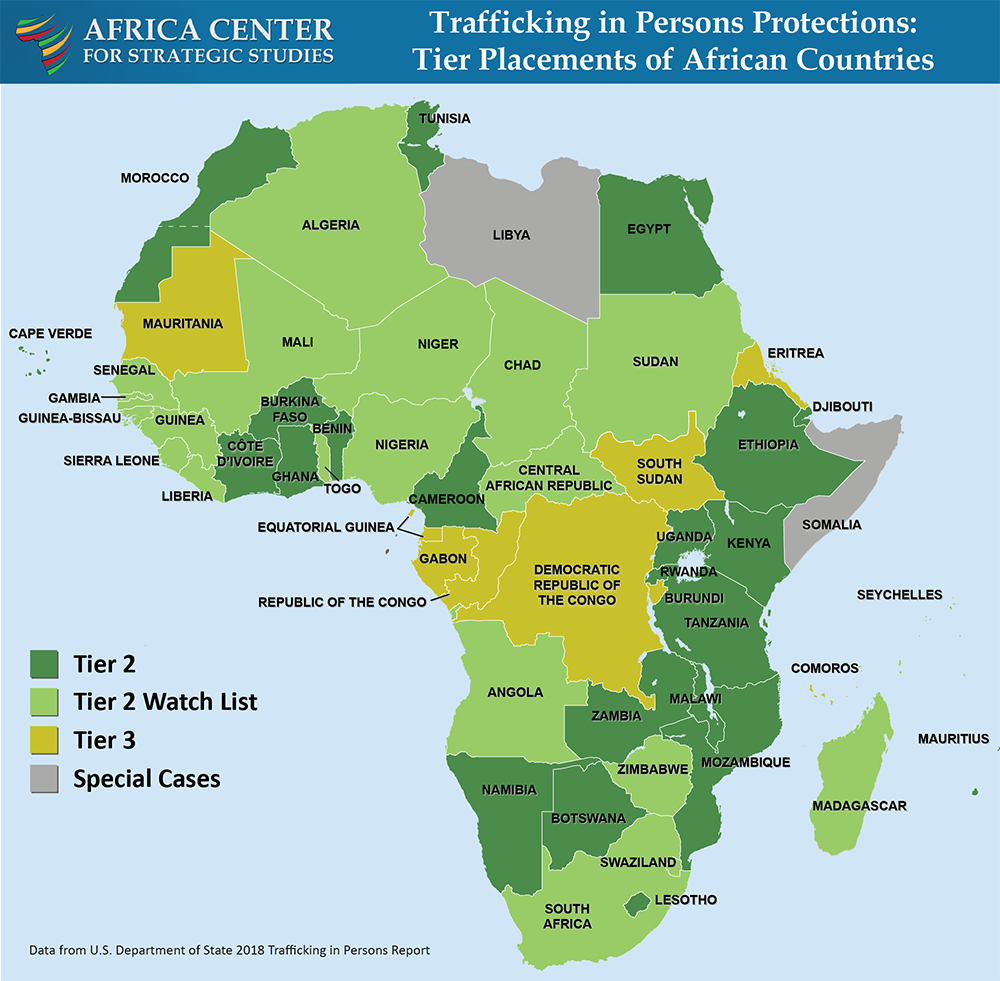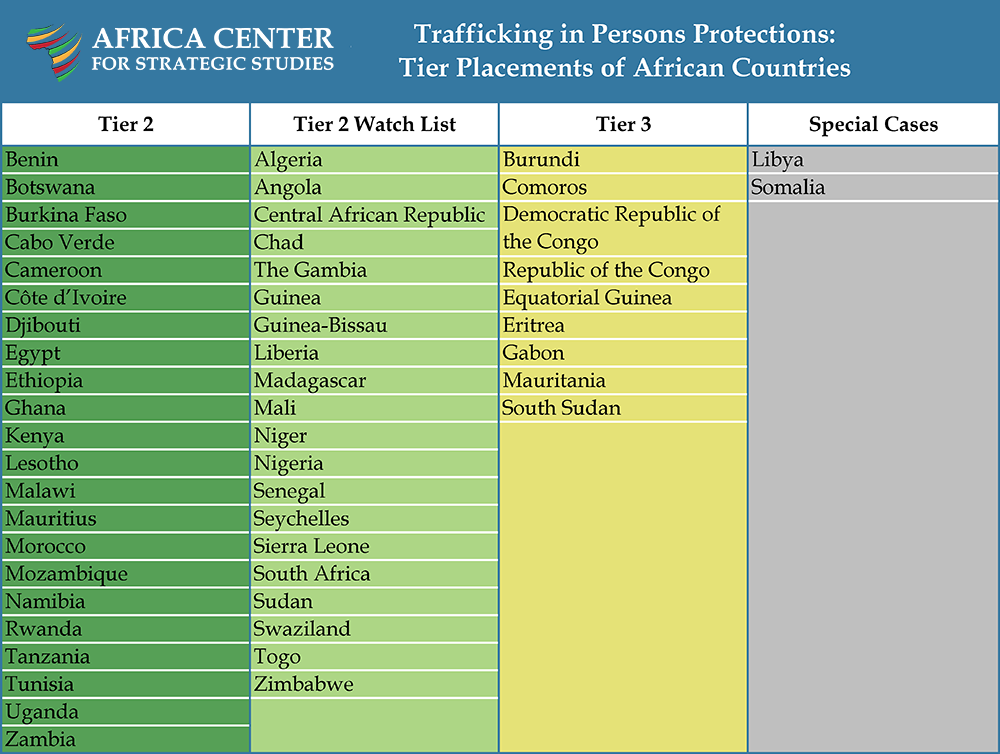Human trafficking is a $13.1 billion annual enterprise in Africa. With the wave of migration toward the Mediterranean that started in 2014, thousands of migrants have found themselves vulnerable to trafficking and other exploitative practices. The U.S. State Department’s 2018 Trafficking in Persons Report tracks compliance with the Trafficking Victims Protection Act (TVPA). Some notable observations include:
- As of 2018, no African country fully meets the TVPA’s minimum standards.
- The International Organization for Migration found that 77 percent of some 4,700 interviewed migrants arriving in Italy from Africa experienced at least one form of human trafficking.
- Libya is the African country reported to be most active host of human trafficking and other exploitative practices. However, trafficking frequently starts even earlier along the smuggling routes to the Mediterranean, such as in the smuggling hubs of Egypt, Ethiopia, Sudan, and Niger.
- Mauritania, one of the last countries to officially abolish slavery, has one of the highest rates of enslavement in the world. According to the Global Slavery Index, it is in company with Burundi, Central African Republic, Eritrea, and South Sudan.
- Of the nine African countries in Tier 3, eight are considered “not free” by Freedom House. Comoros, the outlier, is not party to the UN Protocol to Prevent, Suppress and Punish Trafficking in Persons, Especially Women and Children.
- Twenty-two African countries fall under Tier 2, which means that though they do not meet the TVPA’s minimum standards, they are working to bring themselves in compliance.
- An additional 19 countries are on the Tier 2 Watch List because, despite their commitment to bring themselves into compliance, they have not yet provided evidence that their efforts have had any significant results.
The TVPA defines “severe forms of trafficking in persons” as:
- Sex trafficking in which a commercial sex act is induced by force, fraud, or coercion, or in which the person induced to perform such an act has not attained 18 years of age; or
- The recruitment, harboring, transportation, provision, or obtaining of a person for labor or services, through the use of force, fraud, or coercion for the purpose of subjection to involuntary servitude, peonage, debt bondage, or slavery.
A victim need not be physically transported from one location to another for the crime to fall within this definition.
U.S. Department of State, 2018 Trafficking in Persons Report
More on: Africa Security Trends Governance



